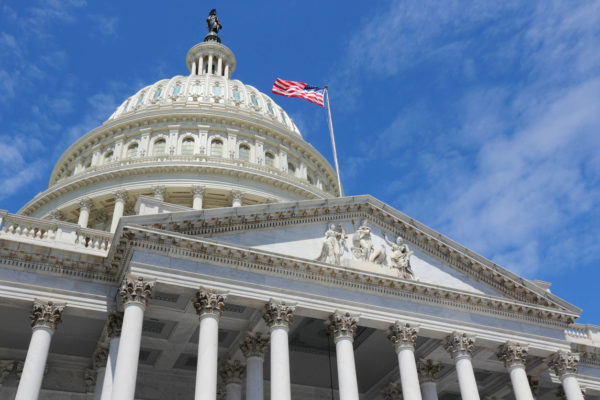In her recent testimony to Congress, preschool teacher Martha Rodriguez expressed the fears and exhaustion that millions of Americans face after she and her husband lost three jobs. She spoke about struggling to afford their mortgage, finding new jobs and home-schooling children indefinitely.
She was speaking to lawmakers in support of the Health and Economic Recovery Omnibus Emergency Solutions Act, or Heroes, a $3 trillion coronavirus aid bill that was passed by the House of Representatives.
Now, after over a month of inaction, senators are urging Majority Leader Mitch McConnell to bring the act to the Senate floor for debate and a vote. The Senate should act now. The act includes several components that would benefit struggling Americans just like Rodriquez.
The act promises a second stimulus check, hazard pay, student loan forgiveness, housing and food assistance, debt relief, six more months of COVID-19-related unemployment benefits and almost $1 trillion of aid to local and state governments for paying vital workers, such as health professionals and teachers.
As pediatric health care providers, we know that senators must move swiftly to provide economic relief to America’s most vulnerable families, especially as many provisions of the CARES Act, including unemployment benefits, are set to expire soon. The health of our young patients depends on it.
Amid several health-promoting components of the Heroes Act, expansions of tax refunds offer unique, well-tested benefits, especially to children. For example, increasing and expanding the child tax credit will enable America’s poorest families to have access to funds they can spend on debts, housing, healthy food, medicines and other resources necessary to surviving and recovering from the recent economic recession.
The act also expands the earned income tax credit, which is considered an evidence-based, cost-effective intervention to improve child health by the Centers for Disease Control and Prevention. Studies show a robust earned income tax credit is associated with improved child and maternal health and reduced rates of adverse childhood experiences, such as homelessness.
Pediatricians know how much financial hardship impacts health. Even before COVID-19, 2 in 5 young children in the United States lived in or near poverty, negatively affecting their physical health, socioemotional development and educational achievement. Study after study shows poverty’s harm to birth weights, infant mortality rates, language development, chronic illnesses, nutrition, hospitalization rates, K-12 school performance, graduation rates and more.
The root of many health and social problems is economic insecurity. Integrating services specifically aimed at improving patients’ economic opportunities into medical systems is a promising strategy for improving health. Medical-financial partnerships are helping health care teams to help families with low income build budgets and credit, file taxes and claim refunds, and establish savings accounts for their children.
In addition to increasing patients’ financial capability, such programs have the potential to deepen connections between patients and providers, thereby potentially increasing adherence to medical appointments and treatment plans, improving health and decreasing health care expenses.
In these unprecedented times, we need more programs and policies offering economic opportunities to families with low income, maximizing their ability to raise children who become healthy, productive adults.
Many Americans are running out of contingency plans. Three months of mortgage payments are coming due while their work opportunities are dwindling, especially for workers in the child care and service industries. And work-from-home positions are complicated by uncertainties surrounding the upcoming school year. It’s difficult for parents to commit to working during business hours when children will likely be learning from home for large portions of the school week. For early childhood educators like Rodriguez, remote work is a nonstarter.
The CARES Act provided critical relief during the early days of the pandemic, but the virus and its economic consequences continue to harm families, including the health of America’s children. If the Senate fails to act soon with another round of economic relief payments, poverty and financial stress will wreak further havoc on our health and our children’s long-term outcomes. Providing immediate economic relief is a necessary step our leaders must take to protect the physical, mental and financial health of all Americans. The Senate must pass this vital form of legislation.
Mary Beth Bennett is a medical student at Dell Medical School at The University of Texas at Austin.
Dr. Michael K. Hole is an assistant professor of pediatrics, population health and public policy at Dell Medical School and the LBJ School of Public Affairs at The University of Texas at Austin.
A version of this op-ed appeared in The Hill.




